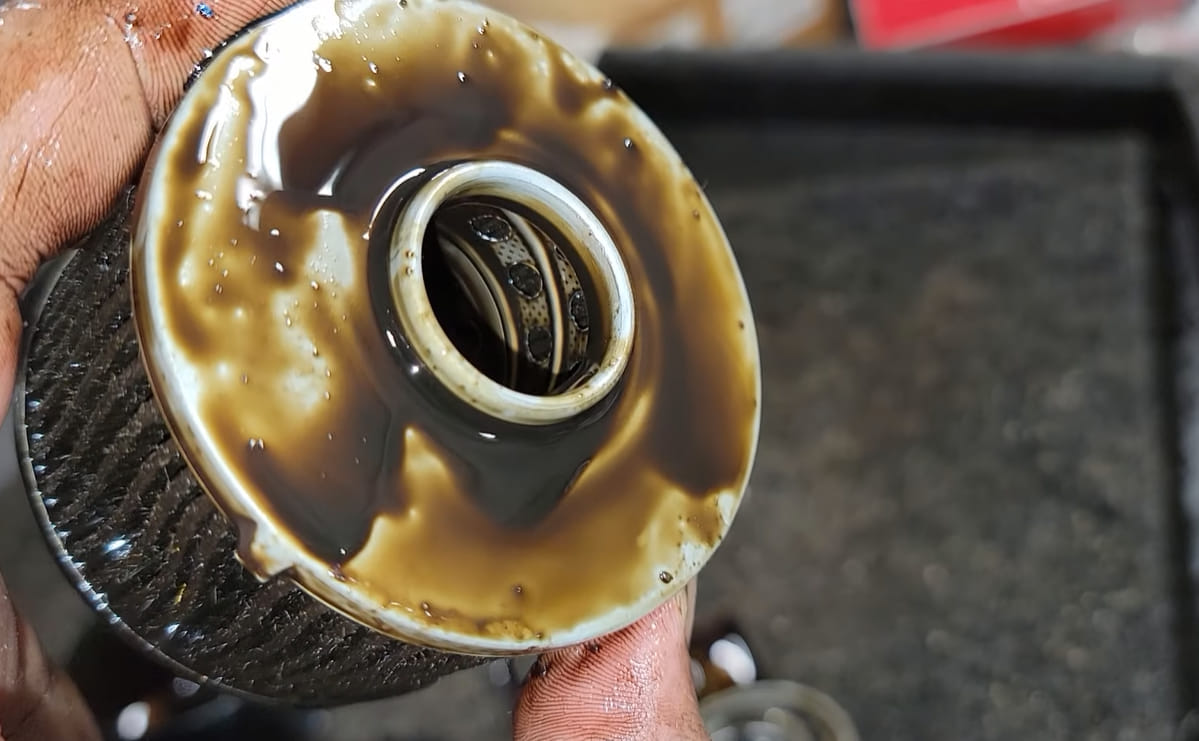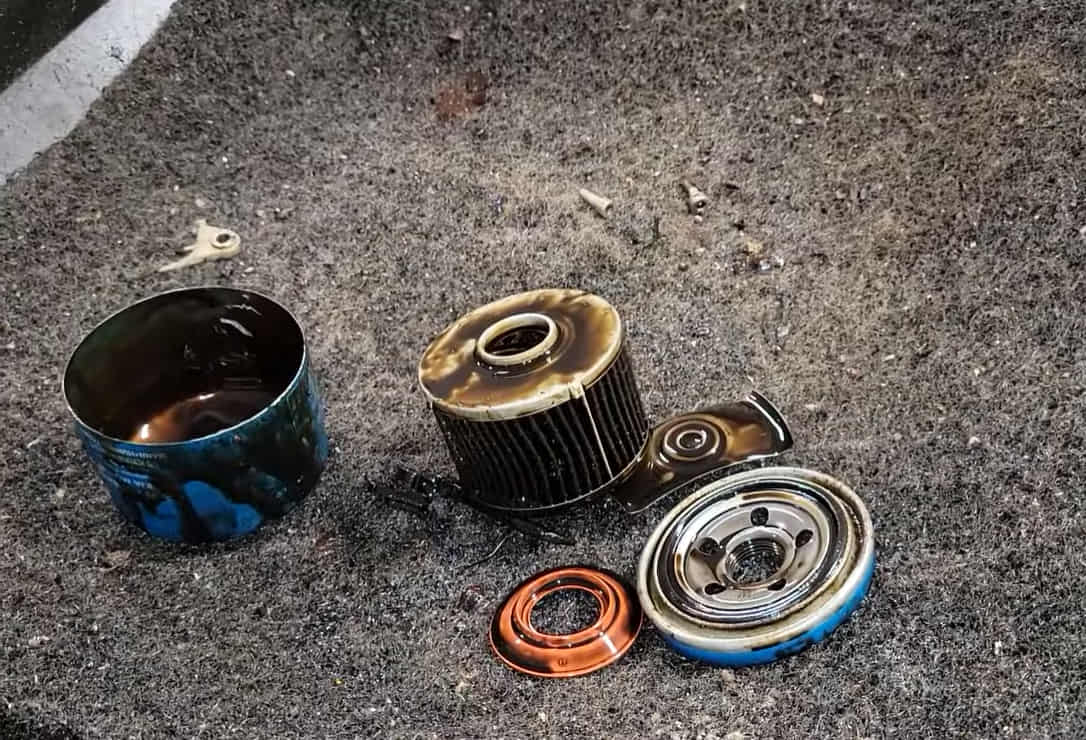Kia oil filter problems present themselves at one point or another during the lifespan of your vehicle.
Considering how crucial this component is in the way your vehicle performs, it is important to know the signs of these issues before things get worse.
Thankfully, there are certain symptoms that let you know if it is time to get your oil filter fixed or repaired. Be on the lookout for these signs, so you can prevent further damage from happening.

Contents
Signs Of Kia Oil Filter Problems
Your car’s oil filter is responsible for making sure the oil is free from contaminants and debris. After oil, your vehicle depends on the oil to keep the different engine parts lubricated. As it circulates through your engine, it tends to pick up debris and dirt along the way. So, it is essential to keep these particles out of your engine to maintain its lifespan.
This is why it is so important to keep your oil filter in good condition. By doing so, your engine is free from debris that can cause damage to it over time. Without a filter, contaminants build up quickly in your engine. This will lead to a number of functionality issues both in your vehicle and engine.
Here are some of the most common signs of Kia oil filter problems that you should know to prevent further damage from occurring. Once you recognize these symptoms, it is best to take quick action and visit an authorized Kia mechanic to get the filter replaced before things get worse.
1. Overheated Engine
When you notice that your temperature gauge is on high, this means that there are contaminants in the filter. This clogs up the filter, which impacts the fuel economy and performance of your vehicle.
This is why it is important to keep your air filter in good condition. Without a functional oil filter, this prevents oil from flowing and entering efficiently in the engine. Thus, your engine is unable to get ample lubrication for all the moving parts.
Once friction occurs between all the metal components, this quickly generates heat. If heat builds up and does not dissipate correctly, the engine will then overheat. This is why you may notice the “check engine” light turning on.
2. Weak Engine
When your vehicle fails to perform as it normally does, this reveals issues in the engine. Contaminants in the engine happen when there is no proper filtering, which is what your oil filter does. Hence, it reduces your engine’s ability to produce power required to run the vehicle smoothly.
Oil filter that is dirty and clogged up has a tough time removing contaminants and debris out of your engine oil. They enter through narrow oil journals in the engine and cause more blockages and restrictions. Eventually, these particles become engine sludge as time passes by, which then sticks to the motor.
Acceleration is minimized even if you step on your gas pedal. The longer you keep the problem unsolved, the performance will deteriorate over time.
3. Black Smoke And Fumes From Exhaust
Do you notice black smoke coming out of the tailpipe? If it appears to be blue or gray, then there is an issue with oil burning. This problem is due to the oil filter being clogged up, which causes the oil to quickly flow into the exhaust system and burn up right there.
In addition to the black smoke, you can also smell a burning odor while inside the car. When you notice these signs, it means that you need to have your filter replaced sooner than later.
4. Poor Oil Pressure
Your car has an oil pressure gauge that may be showing a decline in the level as you drive. If the oil pressure gets really low quickly while driving, it means that the oil pressure sensor is faulty or you have an issue with the oil pressure.
This can be a huge problem for your vehicle and it is not advisable to keep on driving when this issue happens. A clog in your oil filter often causes this problem since oil does not flow smoothly into the engine.
5. Metallic Sounds
Lastly, when there is not ample lubrication in the engine, this causes metal parts to grind against themselves and generate too much friction. This is why the engine overheats and causes the parts to wear out faster. When there is no adequate oil, components in your engine – and most particularly essential ones, become quickly prone to damage.
When you observe these signs, be sure to get your oil filter checked and replaced as needed.
Addressing Oil Filter Problems

Thankfully, an oil filter replacement should not cost you too much. In fact, it should be easy to replace one without shelling out over $20. Moreover, oil filter replacement should be a key part of routine oil change.
If you like to do this job yourself, you can simply buy an oil filter and do the oil and filter change yourself. This is a simple DIY task that many car enthusiasts and mechanics can do.
By making sure your oil filter is well-maintained, and you have the right tools and basic techniques on hand, then you can keep these Kia oil filter problems at bay and ensure the longevity and performance of your vehicle.
Read More: Kia Optima Check Brake Warning Won’t Start – Here’s What To Do
Wrapping Up
Kia oil filter problems can lead to serious issues when left unaddressed. From engine damage to performance issues, all of these things can be prevented by making sure your oil filter is in good condition. It all begins with making sure routine maintenance is done as scheduled and correctly.
We hope this post has been helpful for you, so you can keep your engine’s performance good as new with the right maintenance of all key components crucial to its lifespan.